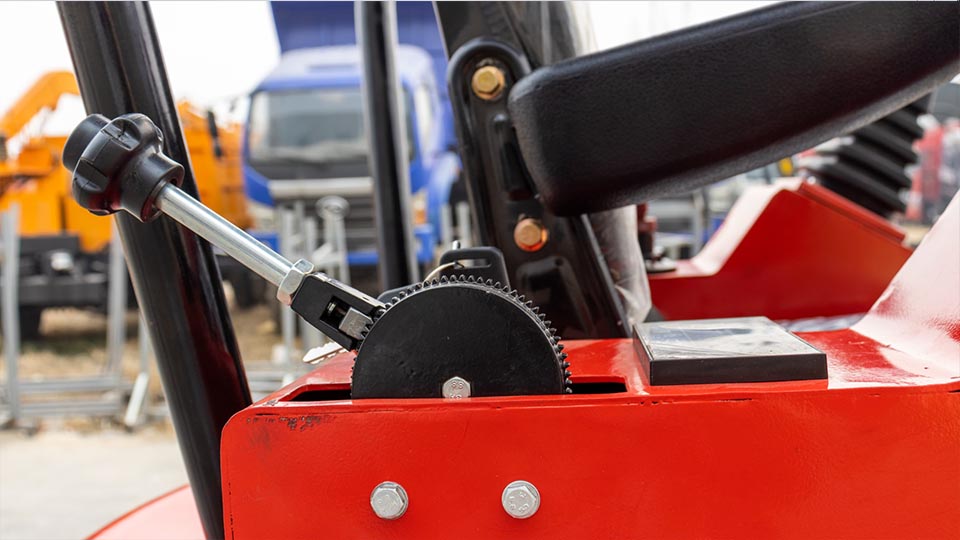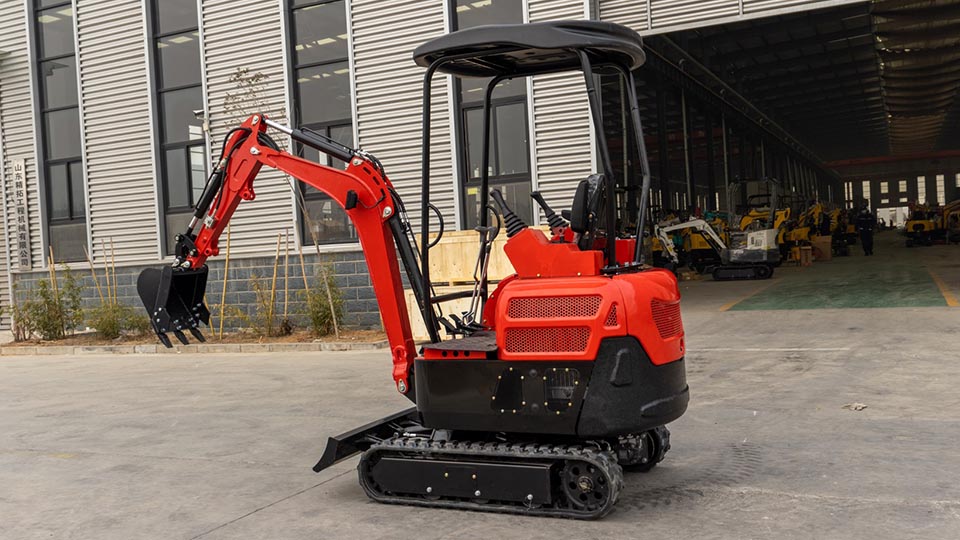Excavators are powerful, versatile pieces of heavy machinery that are essential for countless construction, landscaping, and demolition projects. Their ability to dig, trench, and move large amounts of material with precision makes them invaluable on a job site. For many businesses and individuals, renting an excavator is far more practical than buying one due to the high costs of purchase, maintenance, and storage.
However, a critical question arises for anyone considering this option: "Can I rent an excavator without an operator?" The answer is a resounding "yes," but this simple affirmative comes with a host of important requirements, legal considerations, and safety precautions that must be thoroughly understood. This technical article will explore the ins and outs of renting an excavator without an operator, detailing the necessary qualifications, the legal and insurance landscape, and the crucial safety responsibilities you assume.
The Fundamental Distinction: Operated vs. Bare Rentals
First, it's important to clarify the terminology used in the heavy equipment rental industry.
Operated Rental: This is a rental package that includes both the excavator and a skilled, certified operator. The rental company or a third-party contractor provides a professional who is experienced in operating the specific machine. This option is often more expensive but shifts the responsibility for safe operation, maintenance, and liability to the provider. It's the ideal choice for projects that require a high degree of skill, for companies without certified operators, or for those who simply want to minimize their risk and focus on other aspects of the project.
Bare Rental: This is the process of renting only the excavator itself, without an operator. The responsibility for operating the machine and all associated risks falls entirely on the renter. This is the more common choice for contractors, landscapers, or private individuals who either have their own certified operators or plan to operate the machine themselves.
The ability to secure a bare rental is a key aspect of the heavy equipment market, but it is not a right—it is a privilege granted upon meeting specific criteria.

The Core Requirements to Rent a "Bare" Excavator
While the specific policies can vary between rental companies and geographical locations, there are a few non-negotiable requirements you must meet to rent an excavator without an operator.
1. Operator Competency and Certification
This is the single most important factor. Operating an excavator is not an intuitive task; it requires a specific skill set and an understanding of the machine's capabilities and limitations.
No Universal "License": Unlike a standard car, there is no single, federal "excavator operator's license" required for operation on private property. However, this does not mean there are no rules.
OSHA Requirements: The Occupational Safety and Health Administration (OSHA) mandates that all operators of heavy equipment, including excavators, must be trained and competent to operate the machinery safely. This training should be specific to the type of equipment being used and the worksite's conditions. It's the employer's responsibility to ensure their employees are properly trained.
Rental Company Policies: Rental companies, to protect their valuable assets and mitigate their own liability, will often require proof of operator experience and training. For a professional contractor, this could mean providing documentation of a certification from a reputable training program. For a private individual, it might involve signing a waiver acknowledging your experience and responsibility, or even a brief on-site demonstration of your ability to the rental company's representative. It is a critical misconception to believe that a lack of a formal "license" means a lack of required training.
2. Insurance Coverage
Renting a machine that can cause significant damage to property or serious injury requires robust insurance. The rental company will not allow you to leave with their equipment without proof of adequate coverage.
Damage Waiver vs. Third-Party Insurance: Most rental companies will offer a "damage waiver" as part of the rental agreement. This is essentially an insurance policy for the equipment itself, covering things like accidental damage, theft, or vandalism. It typically costs a percentage of the rental fee (e.g., 10-15%).
General Liability Insurance: Beyond the equipment itself, you are also responsible for any damage or injury your operation of the excavator causes to others. A business will typically have a commercial general liability (CGL) policy that covers this. An individual may need to check their homeowner's policy or purchase a separate short-term policy to ensure they are covered.
Certificate of Insurance (COI): For business renters, the rental company will almost always require a COI, a document issued by your insurance provider proving you have the required coverage in place.
Failing to have proper insurance is a deal-breaker for any reputable rental company. They will not assume the risk of a multi-thousand-dollar piece of equipment or the potential liability of a workplace accident.
3. Age and Identification
This may seem obvious, but it is a universal requirement. You must have a valid form of identification, typically a driver's license, to rent heavy equipment. Most companies also have a minimum age requirement, usually 21 years old, to ensure a baseline level of maturity and experience.

The Hidden Risks and Responsibilities
While a bare rental offers more control and can be more cost-effective, it also places a significant burden of responsibility on the renter. You are not just paying for the machine; you are assuming all the risks that come with it.
Liability: As the operator, you are fully liable for any accidents or injuries. If you dig a trench that collapses, or accidentally damage a utility line, the legal and financial responsibility will fall on you. This is why proper training and insurance are so critical.
Maintenance and Downtime: The rental agreement will detail your responsibilities for daily maintenance. This includes checking fluid levels, tracks, and hydraulics. If the machine breaks down due to neglect, you could be on the hook for costly repair bills and still have to pay for the rental time you lost.
Transport: Unless you're using a company that delivers, you are responsible for transporting the excavator. This requires a vehicle capable of towing the machine's weight and a commercial driver's license (CDL) if the gross vehicle weight rating exceeds 26,001 pounds. Many smaller excavators can be towed without a CDL, but this is a point to verify.
The Special Case of Mini Excavators
For private individuals or small-scale contractors, the mini excavator is often the go-to choice. These machines, typically under 6 tons, are more manageable, easier to transport, and less intimidating to operate.
Rental Accessibility: Mini excavators are more readily available for bare rental to individuals without a formal business. Large-scale home improvement retailers like The Home Depot or Lowe's offer these rentals, often with a simpler process.
Lower Barrier to Entry: While a basic understanding of safe operation is still a must, the requirements for renting a mini excavator are generally less stringent than for a full-sized machine. The lower power, weight, and operational complexity mean a reduced risk, making rental companies more comfortable with a less-experienced operator (with a signed waiver).
Conclusion
Yes, you can absolutely rent an excavator without an operator. This "bare rental" model is the backbone of the heavy equipment rental industry. However, it is a process built on a foundation of trust and responsibility. To successfully secure a bare rental, you must demonstrate a core level of competency, either through formal training or proven experience. You must also be prepared to bear the financial burden of robust insurance coverage to protect yourself, the rental company, and the public from the significant risks associated with operating such a powerful piece of machinery.
Whether you're a professional contractor with a team of certified operators or a determined homeowner tackling a large landscaping project, a thorough understanding of these requirements is not just a recommendation—it's a necessity. The cost and convenience of a bare rental come hand-in-hand with the full weight of responsibility for safety, liability, and proper operation.
Post time:Sep-25-2020
